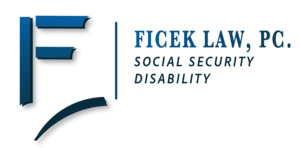
The Weight of the World: How Are Eating Disorders Considered Disabling?
Eating disorders (EDs) are complex mental health conditions that affect millions of people around the world. They’re not just about food consumption or lack thereof. They’re mental health disorders that significantly impact sufferers’ physical health, emotional well-being, and overall ability to function.
According to the National Eating Disorders Association, eating disorders have the second highest mortality rate of any psychiatric illness. Over 28 million people in the U.S., or 9% of the population, are expected to develop an eating disorder in their lifetime. It’s also estimated that 1 person dies every 52 minutes as a direct consequence of an eating disorder.
Unfortunately, the seriousness of EDs is often trivialized by society, which is common with mental health conditions. These types of disorders, such as anorexia nervosa and bulimia nervosa, can lead to severe medical complications. Many individuals develop heart conditions, digestive problems, malnutrition, and more.
An eating disorder can profoundly impact an individual’s daily life and relationships. It’s not surprising that these disorders can also affect a person’s ability to work and maintain employment. This raises an important question: Are eating disorders a disability?
Social Security for Eating Disorders
Is an eating disorder a disability? There’s no question that eating disorders can significantly affect a person’s mood, health, and physical and mental functioning. However, does this mean you can get Social Security Disability benefits for an eating disorder?
The answer is yes, the Social Security Administration (SSA) recognizes that eating disorders can be disabling. An ED is considered a disability if it affects one’s ability to work and meets the criteria of a Blue Book listing.
Eating disorders fall under Blue Book listing 12.13, under the Mental Disorders category. Examples of eating disorders evaluated under this section include:
- Anorexia nervosa
- Bulimia nervosa
- Binge-eating disorder
- Avoidant/restrictive food disorder
The effects and complications of these disorders can impact other body systems. Therefore, it’s possible to qualify for Social Security Disability under a different impairment listing. This may be beneficial for disability applicants who don’t meet all of the qualifying criteria under section 12.13, but are still unable to work due to their condition.
Qualifying for SSDI and SSI
There are two disability benefits programs available to disabled individuals. They include Social Security Disability Insurance (SSDI) and Supplemental Security Income (SSI).
SSDI provides financial assistance to disabled individuals who are unable to work due to a long-term disability. To qualify for SSDI, individuals must have paid into the Social Security System through payroll taxes for a certain number of years, depending on their age. They must also have a medically diagnosed condition that meets the SSA’s definition of disability.
SSI is a needs-based program that provides financial support to individuals who are disabled, blind, or aged 65 or older. Unlike SSDI, you don’t need a substantial work history to receive SSI. To qualify, applicants must meet strict income and asset criteria. SSI is a critical source of support for those who have not worked recently or long enough to qualify for SSDI.
Qualifying Eligibility Criteria
Regardless of your disability, you must meet strict criteria to qualify for Social Security Disability benefits. These include:
- Your disability must prevent you from performing Substantial Gainful Activity (SGA)
- Your disability must be a medically diagnosable condition
- Your disability must be considered a qualifying condition or equal to a Blue Book listing in severity
- Your disability must be expected to last at least 12 months or result in death
Qualifying for Disability Benefits With an Eating Disorder
To qualify with an eating disorder, individuals must provide substantial medical evidence proving their disorder limits their work capabilities. This may include detailed medical records, psychiatric evaluations, and documentation of any physical complications resulting from the disorder. Treatment protocols and resulting outcomes, and body mass index (BMI) measurements, are especially crucial.
Sometimes, it’s wise to file for disability under a different body system or impairment listing. This is because symptoms and medical conditions caused by eating disorders can be disabling in their own right.
Heart failure, kidney failure, bacterial infections, blood sugar fluctuations, and pancreatitis are just a few examples of co-occurring conditions. There are many other health consequences directly related to eating disorders that can impact a person’s work capabilities.
For example, an applicant may qualify for benefits under a listing under Section 5.00, Digestive Disorders. This is because eating disorders often lead to extreme weight loss, malnutrition, intestinal problems, and other related issues.
If an individual cannot qualify under a Blue Book listing, they may still be eligible for benefits. They’ll have to prove their condition or combination of conditions meets or equals a listed impairment in severity. They will also have to prove that their disorder renders them unable to engage in SGA. In these cases, the SSA may issue a Residual Functional Capacity (RFC) assessment, as well.
How a Disability Lawyer Can Help
Navigating the process of applying for disability benefits can be daunting, especially when faced with an eating disorder. Our experienced disability attorney Anton G. Ficek at Ficek Law, PC, can help you through the filing process.
Our law firm provides dedicated, personalized assistance. We take time to understand your situation so we can create the best strategy for getting you the benefits you need. When you come to Ficek Law, PC, you can rely on our experience and attention to detail.
Our firm assists with the following:
- Gathering comprehensive medical documentation to support your claim.
- Highlighting how your eating disorder meets the SSA’s disability criteria. This includes how it impacts your daily life and ability to perform SGA.
- Arguing your case if your eating disorder does not directly qualify under a specific Blue Book listing.
Why Work With Ficek Law, PC
Eating disorders are serious mental health conditions that require understanding, care, and proper treatment. They can affect all areas of your life, from your family and relationships, to work and physical abilities.
If you’re unable to work because of an ED, disability benefits can provide essential financial assistance that allows you to focus on your health and recovery. However, it can be difficult to obtain these benefits, regardless of the severity of your condition.
The SSA has strict rules and guidelines in place to prevent fraudulent claims. These regulations often make it hard for people with legitimate claims to achieve benefits.
Filing for disability benefits with an eating disorder requires a compassionate yet professional approach. At Ficek Law, PC, we understand how eating disorders can impact every aspect of your life. We are also highly skilled at navigating the SSA’s stringent filing process, medical language, and legal guidelines. With our experience representing all types of disability claims, we’re uniquely positioned to advocate on your behalf.
If you or a loved one is struggling with an eating disorder, reach out to Ficek Law, PC, today. It’s our top priority to present your case effectively and empathetically to maximize your chances of success. Let our Social Security Disability attorney in North Dakota help you navigate the complexities of the disability benefits system.
Contact us for a free consultation.



